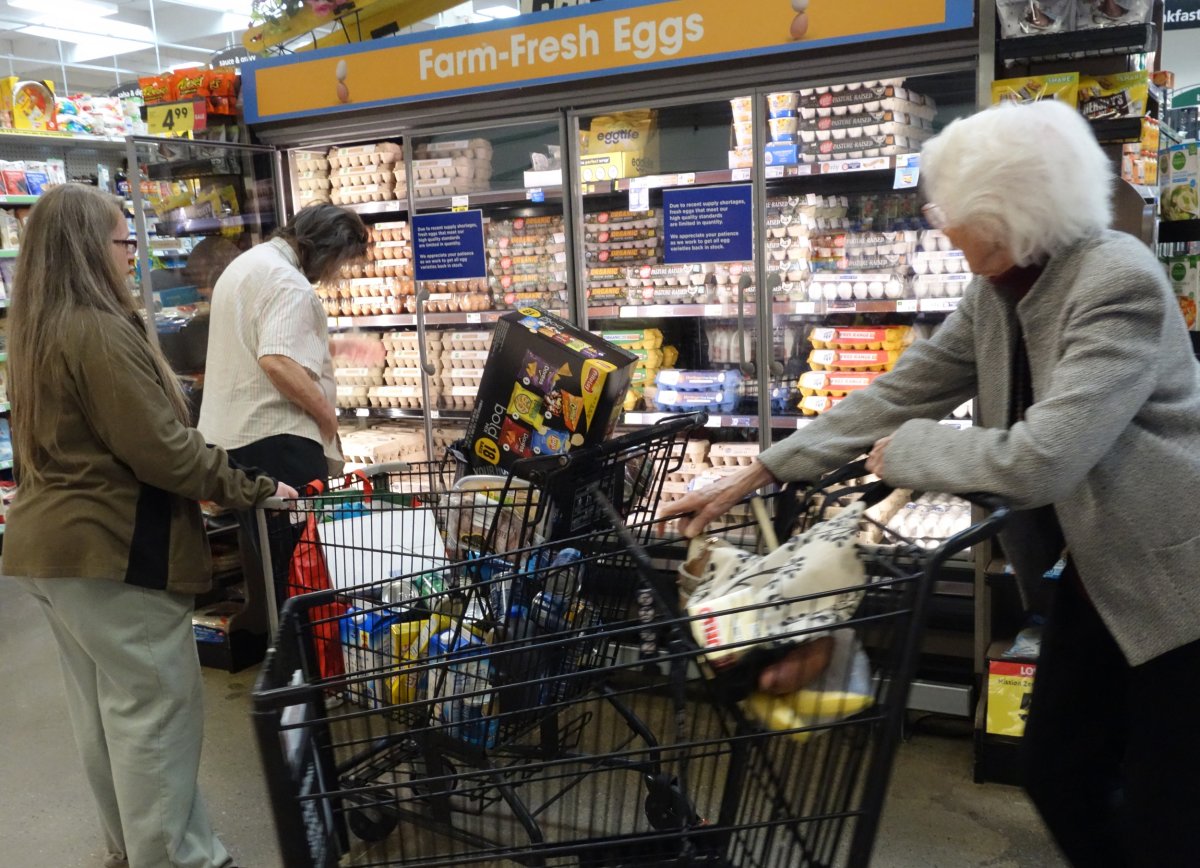After reaching an all-time high of $5.81 in December, egg prices are still on the rise in many parts of the country.
On Monday, Amy Nixon, a housing and macroeconomic analyst in Dallas, said on social media that she had spent more on a dozen eggs than a pound of fresh ground beef. Newsweek contacted Nixon for comment by email on Tuesday.
Why It Matters
Americans are still recovering from the sudden rise in inflation, which followed the end of the COVID-19 pandemic. Though inflation cooled down dramatically from its peak of 9.1 percent in June 2022, rising prices remained voters' main concern ahead of the 2024 presidential election. An October Bankrate survey found that 41 percent of Americans said inflation was their top economic issue for the election.
In November, the latest data available, prices increased by 2.7 percent in the U.S. compared to the year before—marking the second consecutive month of inflation creeping up in the nation. These increases weigh on Americans' finances and savings, adding another burden on those still suffering from the post-pandemic inflation hangover.

What To Know
The Department of Agriculture's latest weekly report on the egg market, which it released on January 3, said egg prices were up in many parts of the U.S.—including in the Midwest, one of the largest eggs producers in the country.
"The wholesale price on the New York market for large cartoned shell eggs delivered to retailers rose $0.12 to $6.06 per dozen," the USDA wrote. "In the major Midwest production region, the wholesale price for large, white, shell eggs delivered to warehouses increased $0.24 to $5.75 per dozen with a firm undertone while prices paid to producers for large cartoned shell eggs increased $0.16 to $5.72 per dozen."
In California, the price of large shell eggs remained unchanged at $8.97 a dozen, its December peak. In late November, the average price of a dozen large eggs was significantly lower at $5.68.
The price of ground beef has also recently increased, according to data from the Bureau of Labor Statistics. In November, a pound of 100 percent ground beef cost $5.628, up from $5.588 a month before and $5.1 a year earlier.
Between November 2023 and November 2024, the yearly price change for a pound of ground beef was 0.7 percent. However, during the same time, the price of a dozen grade A large eggs went up by 70.7 percent—from $2.138 to $3.649.
Why Are Egg Prices Going Up
The main reason egg prices are going up is the ongoing bird flu outbreak in the U.S., which has caused enormous damage to the country's laying flock and significantly diminished supply.
In December, the lingering effects of the outbreak of H5N1, which is as highly transmissible as it is fatal, combined with increased demand during the holiday baking season to make prices skyrocket.
While the festive season is now behind us, bird flu is still taking its toll on American poultry flocks. Adding to the problem, several states declared emergencies ahead of an Arctic blast that threatened to bring ice, snow and brutal winter storms to much of the country, which resulted in consumers stocking up on eggs and other items amid fears of being stuck at home for a while.
In Dallas-Fort Worth, where Nixon said a dozen eggs cost her more than a pound of fresh ground beef, the conditions affecting the price of eggs were similar to those experienced in the rest of the country.
"DFW is currently being slammed by multiple egg supply & demand issues," the analyst wrote on X, formerly Twitter. "Bird flu + pending snowmageddon, which causes locals to race to grocery stores and clear the shelves of milk, bottled water and eggs because we might get .25 inches of snow and, idk, need 36 eggs."
What People Are Saying
Brian Moscogiuri, the vice president of Eggs Unlimited, told CNBC in December: "There's a very real chance we could flirt with record highs [for prices]."
American Egg Board President and CEO Emily Metz told Newsweek in November: "Highly Pathogenic Avian Influenza (HPAI) is absolutely devastating to those farmers—these birds are their livelihoods. Our supply is tighter than normal due to HPAI, and in some states more than others."
What Happens Next
While the demand for eggs may decrease now that the holiday baking season is over, American procedures will still need time to recover from the losses suffered over the past couple of years because of bird flu.
Last month, the USDA revised its 2025 outlook to include an 11.4 percent increase in the price of eggs throughout the year, compared to a previous estimate of 3.4 percent.




















 English (US) ·
English (US) ·